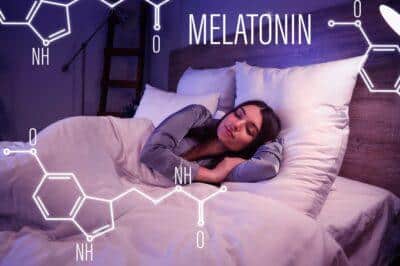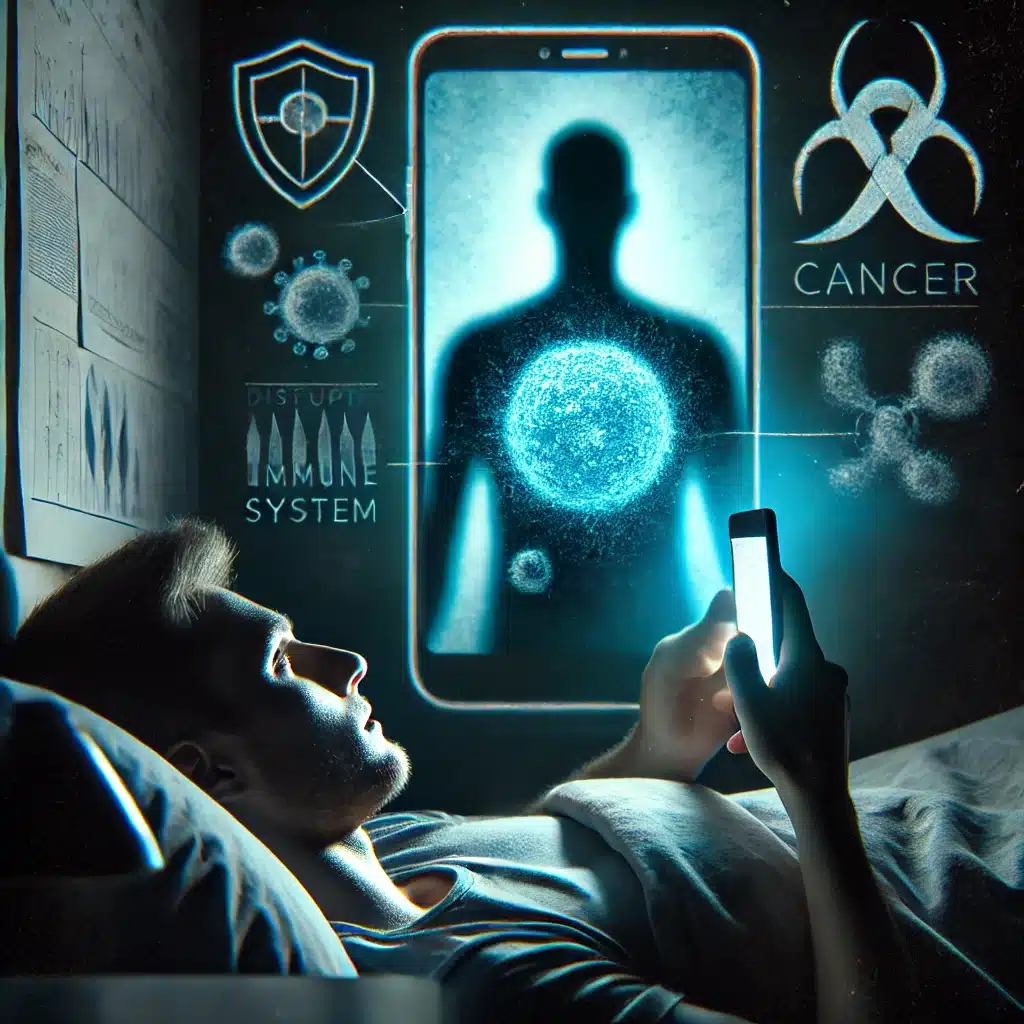Modern life today moves us 24/7 with all kinds of screens, smartphones, and bright LED bulbs. The problem is that we often don’t consider the risks of using these devices before bedtime or when burning the midnight oil under harsh, bright, artificial lighting.
Yet, for all its tech convenience, exposure to blue light at night may have serious health consequences. Recent studies suggest that nighttime blue light will disrupt our biological clocks, hamper immune function, and perhaps even contribute to cancer risk.
Understanding how this happens and what we can do to limit our exposure is crucial and could have significant benefits for our well-being.
The Circadian Rhythm and Blue Light
Human bodies are governed by internal clocks known as the circadian rhythms. This 24-hour cycle regulates sleep, hormone release, digestion, and other essential processes. Importantly, blue light, emitted by LED bulbs and almost all electronic screens, has a dangerous and destructive influence on this rhythm.
Researchers at Harvard University have demonstrated that exposure to blue light at night can delay the release of melatonin, the hormone responsible for helping us drift off to sleep. The human body relies on darkness in the evening to signal that it’s time to rest.
When we stare into our phones or work on laptops before bedtime, we trick the body into thinking it’s daytime, suppressing melatonin and pushing back the onset of quality sleep.
Even worse, the long-term disruption of one’s circadian rhythm has been implicated in a host of issues. Decades of studies on shift workers… who often work late nights under bright lights… consistently show higher rates of metabolic disorders, diabetes, and certain cancers.
The World Health Organization’s International Agency for Research on Cancer (IARC) has classified shift work that involves circadian disruption as a probable carcinogen. This suggests that the blue light surge these workers receive, particularly when the body expects and needs darkness, may contribute to tumor development.

Impact on the Immune System and Cancer Risk
The body’s immune system is most effective when supported by a regular pattern of sleep and wakefulness. A 2013 Immunology and Cell Biology study indicated that immunological processes follow circadian patterns. When those patterns are disrupted, the regulation of immune cells can be compromised, leaving the body more vulnerable to infections and possibly malignant growth.
Melatonin plays a dual role here, as it is more than just a hormone that regulates our sleep. In addition to promoting healthy sleep cycles, melatonin is known for its antioxidant properties and its ability to support immune functions. Researchers have long been intrigued by melatonin’s tumor-inhibiting properties. A study in the Journal of Pineal Research found evidence that melatonin can slow the growth of specific cancer cells and help the immune system fight off precancerous conditions.
When blue light exposure at night lowers the levels of melatonin circulating in the body, we may lose a crucial line of defense against abnormal cell development. Lack of sufficient or high-quality sleep further compounds these issues. Sleep deprivation increases the production of inflammatory cytokines, chemicals in the immune system that can drive chronic inflammation.
Chronic inflammation has been linked to a higher risk of several diseases, including heart disease and certain cancers. By staying up late with heavy screen time, we risk becoming trapped in a troublesome cycle. Blue light cuts melatonin production, disrupted melatonin impairs sleep, and poor sleep compromises the immune system’s ability to fight disease. Makes sense, right?
How Poor Sleep Quality Might Fuel Cancer
Besides its role in daily regeneration, sleep is when cells undergo repair, and harmful byproducts of metabolism are removed. Inconsistent or inadequate sleep patterns resulting from nighttime light exposure may mean these crucial processes are either delayed or never fully completed.
Our cells, then, are not correctly repaired or regularly cleared and can accumulate mutations over time. Some researchers, such as those publishing in Environmental Health Perspectives, have noted that these mutations can potentially contribute to the development of certain cancers, including breast and prostate cancers.
Additionally, disrupted sleep can boost the levels of stress hormones in the body. Elevated cortisol levels, for instance, are associated with imbalances in immune response. Chronic stress itself is known to degrade immune health and can even accelerate tumor growth in some cases. Therefore, scrolling through endless social media or binge-watching shows before bed might be setting off an unfortunate chain reaction that undermines more than just a good night’s rest.
Breaking the Blue Light Habit
Avoiding screens altogether at night can be a tough thing, given established expectations. Our social interactions, for example, demand we keep up with shows our friends are talking about. However, there are steps people can take to mitigate the risks posed by blue light exposure.
Reducing screen time before bed, dimming overhead lights, and using warm lighting options can all help mimic the body’s natural preference for darkness in the hours before sleep. Many devices now include “night mode” or “dark mode” features, which reduce the amount of blue light emitted.
Wearing blue-light-blocking glasses in the evening can also help, especially for those who must work late or who struggle to put their devices aside.
Embracing better sleep hygiene… including setting a consistent bedtime, keeping the bedroom dark, avoiding caffeine late in the day… and perhaps listening to an audiobook rather than staring at a screen can bolster melatonin production and support the immune system. These lifestyle adjustments can help reverse some of the adverse effects of evening light exposure, allowing the body’s natural rhythms to guide us into restorative sleep.
Final Thoughts
In a world illuminated by blue screens, it’s easy to forget that our bodies need rest in darkness. As scientific research continues to link circadian disruption with immune dysfunction and heightened cancer risk, the warnings about late-night blue light deserve serious attention.
However, by adjusting our devices, turning off the lights earlier, or rethinking late-shift work environments, we can minimize blue light at night and significantly impact our health.
Lastly, listening to our internal clocks might be the simplest yet most powerful method of reducing modern technology’s toll on our bodies.










